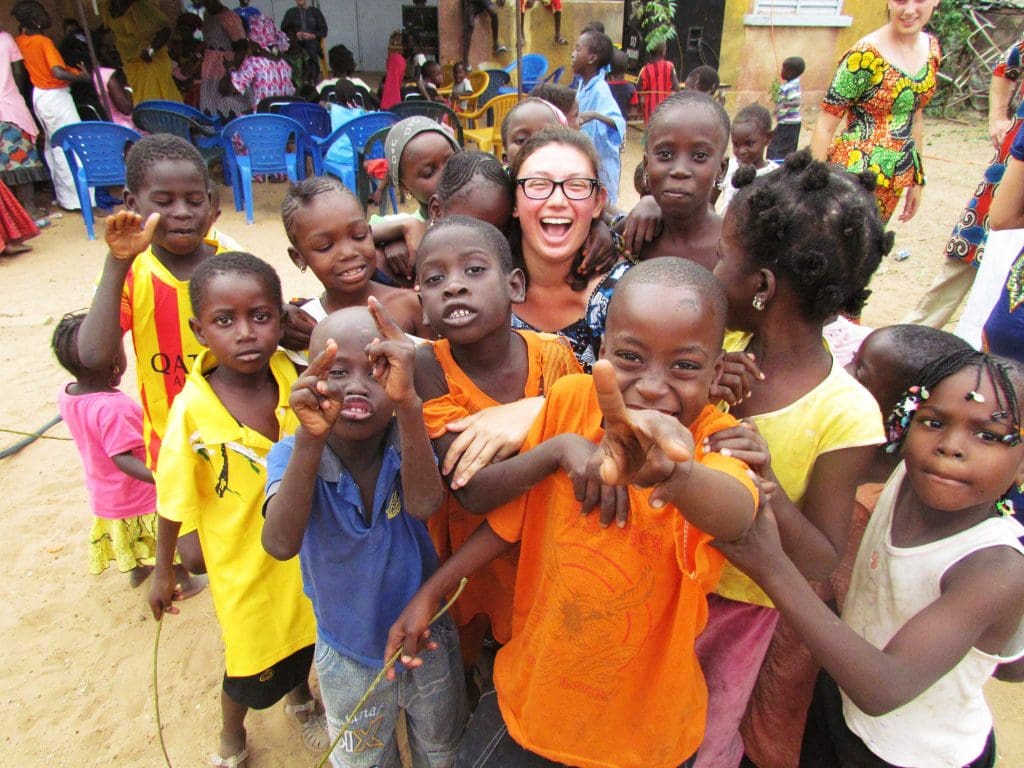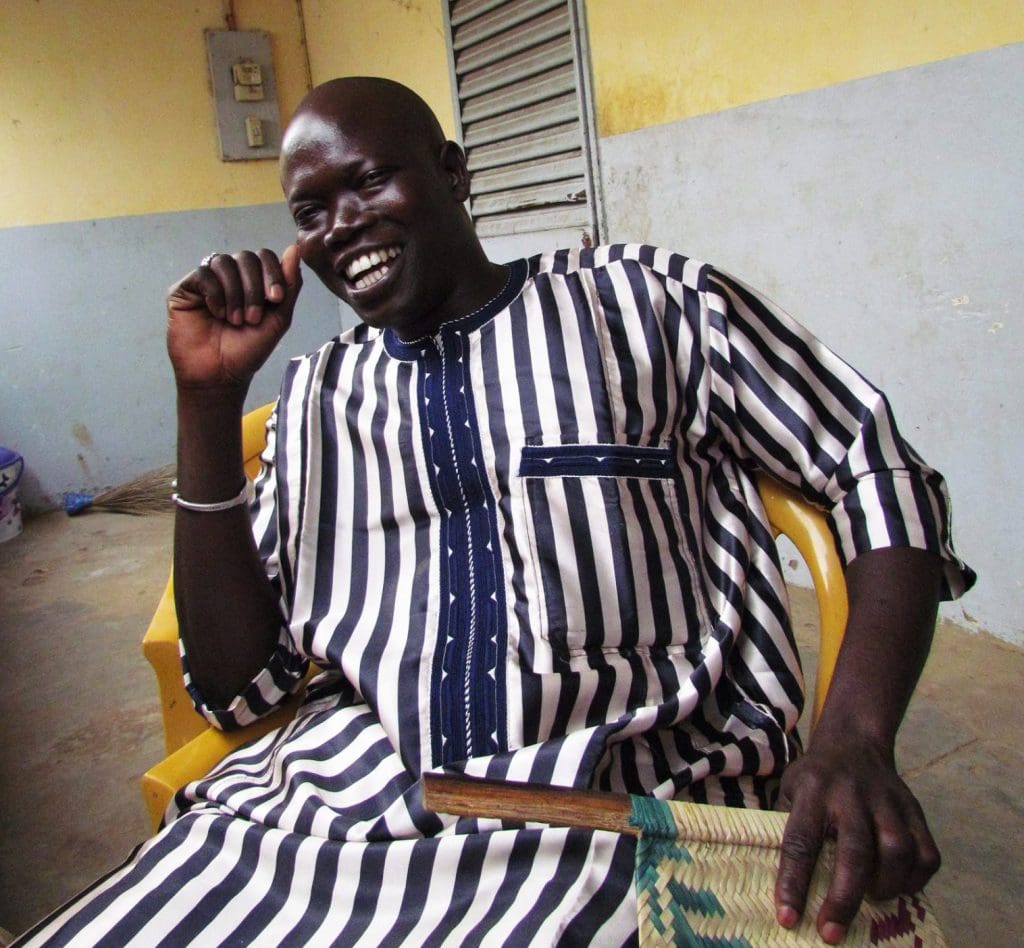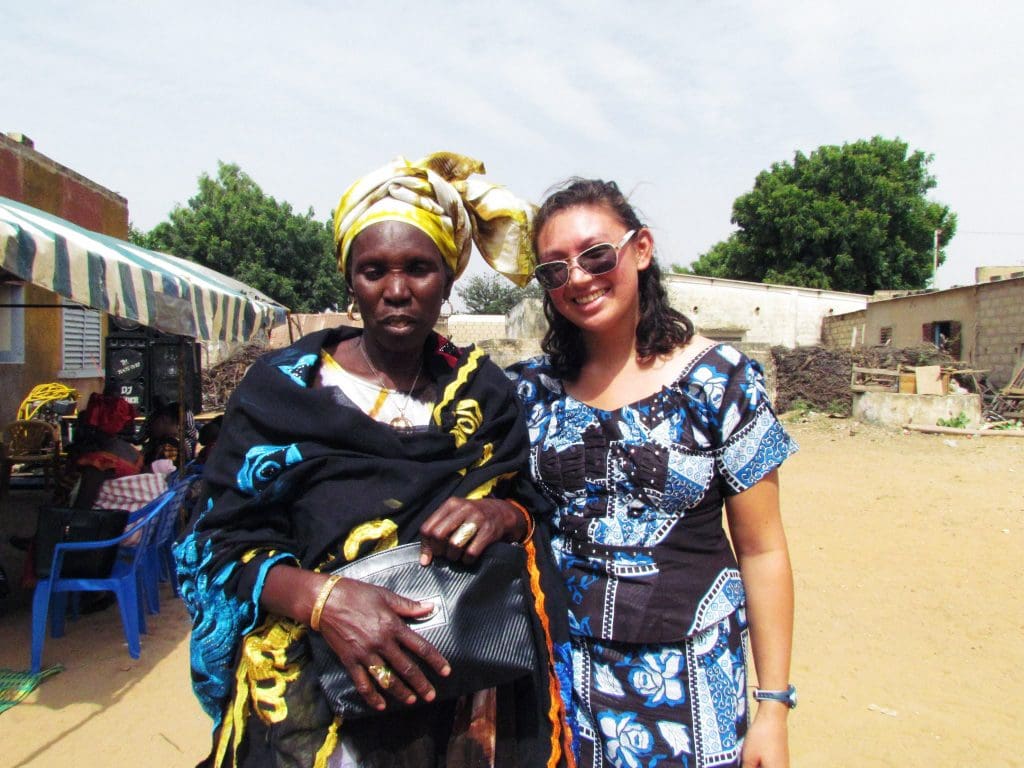November 1, 2016
During her first year in Senegal, Lorang has helped plant over 3,000 trees.

Montana native Christine Lorang was born and raised outside of Billings, Mont., and from an early age can remember being in awe with the natural beauty of Montana. She credits her childhood curiosity for figuring out how the world works for pursuing an environmental sciences degree at the University of Montana Western.
Lorang graduated from the University of Montana Western in fall of 2013, earning an environmental sciences degree with emphases in wetlands management and geology.
She was attracted to UMW because of the Experience One (X1) program that provides outdoor class settings and the opportunity for international travel. Montana Western is the only public four-year institution teaching under X1, where students take a single-class-at-a-time in 18-day blocks.
“X1 provided me the opportunity to get outside the traditional classroom to see and interpret land around me with a scientific eye,” Lorang said. “During my time at Montana Western I was introduced to many people working in environmental science jobs during field trips and while conducting my own research. It was helpful to see the degree I was pursuing being utilized by professionals.”
While at UMW, Lorang was the president of Terra Verde, the student-led environmental sciences club, organized the annual Earth Day celebration and a leaf-raking project to help the elderly in Dillon, and was involved in additional volunteer activities.
“Christine was a top academic student and was awarded the environmental sciences scholarship, which rewards one junior-level student each year who excels academically and actively contributes to bettering the department,” Geology Professor Rob Thomas said. “Christine is a great example of the type of student we are trying to produce at Montana Western and in the Environmental Sciences Department. The Peace Corps suits both her professional skills and selfless attitude perfectly.”
Since graduation, she has been putting her knowledge to work in the West African country of Senegal as a member of the Peace Corps beginning in November 2015.
Senegal is slightly smaller than the state of South Dakota with a population of 13 million people. Despite some recent economic successes, many of the nation’s residents live in extreme poverty.

Lorang credits the hands-on experience she acquired under Experience One with making her a great candidate for the highly competitive Peace Corps. Last year, Peace Corps received more than 17,000 applications for fewer than 4,000 positions.
“When applying to the Peace Corps I was very confident in my application because I possessed many of the technical skills needed to be a great agroforestry volunteer,” Lorang said. “These technical skills included organic and non-organic gardening and farming, forestry management, and a solid understanding of botany, biology and natural sciences.”
She also felt well prepared to step into the role of teacher in Senegal due to her education at Montana Western.
“X1 classes force a person to absorb a lot of knowledge in a short amount of time and act competently in that subject. Walking into the role of a volunteer is easy; it’s the role of a teacher that is challenging,” Lorang explained. “Due to the large component of public speaking and presentations I completed at UMW, I found myself comfortable in large group settings teaching in the Senegalese local language. I also was prepared with the basic skills to identify plants and insects, and had the critical thinking skills to solve problems.”
During her first year in Senegal, Lorang has helped plant over 3,000 trees, including cashew orchards, live tree fences (thorny trees used to prevent livestock from getting into a field) and trees in family compounds.
Lorang is currently working on creating a series of cooking classes so she can teach women how to incorporate Moringa leaves into their daily diet. Moringa, or Never Die, is a tree with nutrient-rich leaves that provide a good source of vitamins.
She also helped plan a large four-part mangrove reforestation and has taught locals how to make tree nurseries and how to employ more efficient gardening practices.
“Teaching the local population modern techniques for planting and sustaining their own crops has a tremendous impact on their ability to feed themselves,” Lorang said. “In line with the Peace Corps’ goal of ‘helping equip people with the skillsets that they need to help themselves’ I am in a position to not merely temporarily help people, but provide them a better future for generations.”

Coming up on her one-year anniversary in Senegal, Lorang is looking forward to building on the successes of her first year and planning health training on handwashing, teeth brushing and nutrition. In addition, she is researching mud stove designs for local women. A mud stove is an efficient and sustainable way to cook using less fuel while reducing smoke.
Upon her return to the United States in November 2017, Lorang is considering environmental science careers with the U.S. Forest Service, Natural Resources Conservation Council or National Oceanic and Atmospheric Administration. She is also considering returning to school to pursue a master’s degree.
— Montana Western —